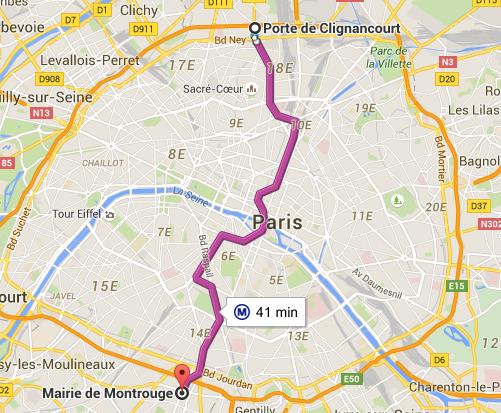

#Dernier metro 4 full
The first night is loved by a full house but one of the newspaper reviews next morning is viciously hostile, damning the show as Jewish. Unknown to anybody at the theatre, Bernard is a member of a Resistance group and delivers the bomb that kills a German admiral. Marion is immediately smitten with the oblivious Bernard, whom Lucas only knows from a headshot and what he can hear through a rigged heating vent. Their evenings are spent in the empty theatre making love and discussing the current production alongside plans for Lucas to flee the country. Her Jewish husband, Lucas, is the director of the theater believed to have left Paris but is in fact living in the cellar, from where Marion releases him each evening while delivering food and prospective materials for future productions. He is taken to see former starlet Marion, who is both owner of the theatre and leading lady. When he arrives, she turns out to be the production designer Arlette, a lesbian. On his way to start rehearsals at the Théâtre Montmartre, where he has been hired as male lead for a new production, young Bernard Granger is repeatedly rebuffed by a woman he is trying to pick up in the street. The Last Metro was one of Truffaut's more successful productions, grossing $3,007,436 in the United States this was also true in France, where it had 3,384,045 admissions, making it one of his more successful films in his native country. It received Best Foreign Film nominations in the Academy Awards and Golden Globe Awards. In 1981, the film won 10 Césars for: best film, best actor (Depardieu), best actress (Deneuve), best cinematography, best director (Truffaut), best editing, best music, best production design, best sound and best writing. The title evokes two salient facts of city life under the Germans: fuel shortages led people to spend their evenings in theatres and other places of entertainment, but the curfew meant they had to catch the last Métro train home. Opening in 1942 during the German occupation of France, it follows the fortunes of a small theatre in the Montmartre area of Paris which keeps up passive resistance by maintaining its cultural integrity, despite censorship, antisemitism and material shortages, to emerge triumphant at the war's end. You can use this line to move in Milan or to reach some cities outside Milan like Como, Varese, Cremona, Lodi etc.The Last Metro ( French: Le Dernier Métro) is a 1980 historical drama film, written and directed by François Truffaut, that stars Catherine Deneuve and Gérard Depardieu. It has only 6 main stops in the city, which are Porta Vittoria, Dateo, Repubblica, Porta Venezia, Porta Garibaldi and Domodossola. PASSANTE FERROVIARIO (PASSANTE RAILWAY) OR SUBURBAN LINE – It is an underground railway which runs through Milan. The most important stops are Isola (Porta Nuova district), Monumentale, Portello (City Life district) and San Siro.


On Sundays and on Holiday the metro runs from 06.00 a.m. LINE 5 / LILAC LINE – The lilac line connects the northern area of Milan with the western area. At the moment, this metro connects Linate Airport to Piazzale Susa. LINE 4 / BLUE LINE – This new metro line is under construction, at the moment only 5 stops are ready. The most important stops on this line are Duomo, Montenapoleone, Centrale FS and Porta Romana. to 00.30 a.m., and on Sundays and on holidays from 06.00 a.m. LINE 3 / YELLOW LINE – This line runs from north to south in a single line. It runs every day from 05.30 a.m. On Sundays and on holidays the metro runs from 06.00 a.m. LINE 2 / GREEN LINE – It is the second metro line in Milan and connects some important touristic areas of the city, such as the Navigli area, Moscova, Brera district and Cadorna. The most important stops on the red line are Duomo, San Babila, Castello and Cadorna FN. LINE 1 / RED LINE – It is the most important metro line in Milan and it connects its most relevant areas from the city center to the suburban area of the city.


 0 kommentar(er)
0 kommentar(er)
